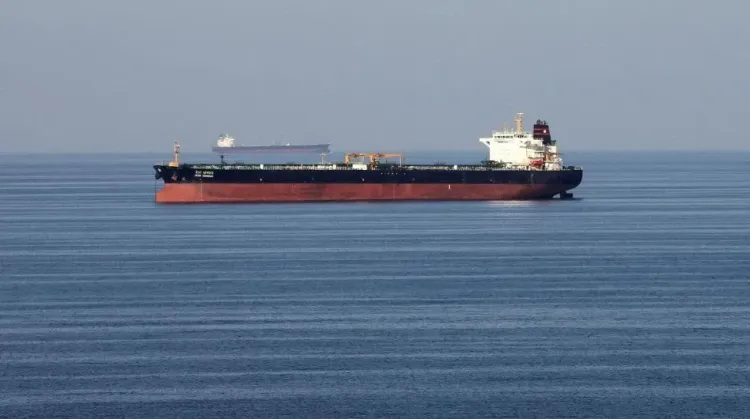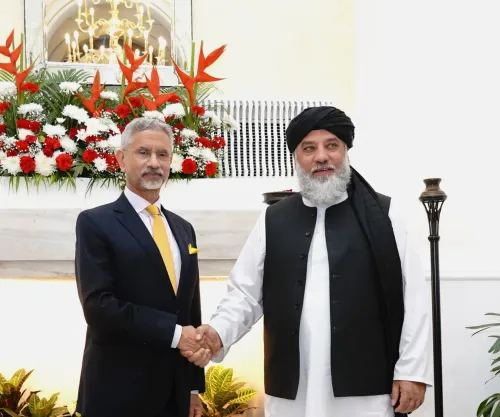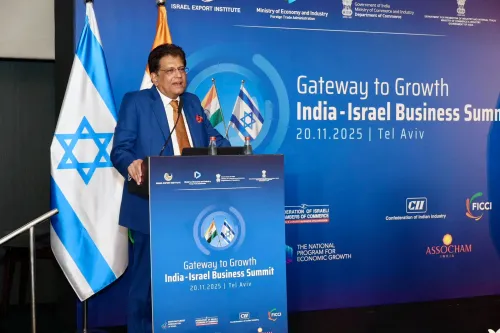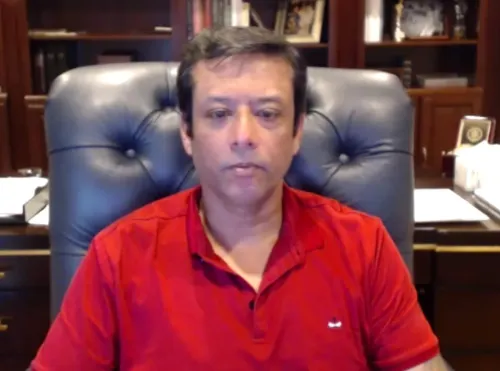Did Iran's Parliament Just Approve the Closure of the Strait of Hormuz After US Attacks on Nuclear Facilities?

Synopsis
Key Takeaways
- The Iranian Parliament has voted to close the Strait of Hormuz.
- This decision follows US strikes on Iranian nuclear sites.
- Ayatollah Khamenei's approval is needed for any closure.
- The Strait is crucial for global oil trade.
- Experts warn of potential spikes in oil prices if the Strait is closed.
Tehran, June 22 (NationPress) The Iranian Parliament has voted in favor of closing the Strait of Hormuz, a vital passage for global oil transit, just one day following US airstrikes on Iran's nuclear installations, as reported by various media outlets.
However, a final decision regarding any retaliatory measures will ultimately reside with the Supreme National Security Council and Iran's leader, Ayatollah Ali Khamenei.
This parliamentary vote serves as a recommendation for potential action.
The US military's strikes on three Iranian nuclear facilities—designated as “Operation Midnight Hammer”—affected sites in Isfahan, Fordow, and Natanz, marking the first direct military involvement of the US in the escalating tensions between Iran and Israel.
The operation has faced criticism, particularly regarding the absence of Congressional authorization for such military actions.
Iran has consistently asserted its capability to shut down the Strait of Hormuz, viewing it as a last-resort measure for escalation.
A closure of the Strait could involve making navigation impossible, with the Iranian Navy potentially deploying mines or using missiles to threaten tanker vessels.
According to Revolutionary Guards Commander Ismail Kowsari, a member of the National Security Commission of the Parliament, “The Parliament has concluded that the Strait of Hormuz should be closed, but the final decision lies with the Supreme National Security Council,” as reported by Al Arabiya and the Jerusalem Post.
The parliamentary vote occurred on Sunday after “Operation Midnight Hammer,” where seven B-2 stealth bombers executed a strike on two nuclear sites, including Fordow, using 14 Massive Ordinance Penetrator (MOP) bombs.
A third site was targeted with Tomahawk submarine-launched cruise missiles.
President Donald Trump declared that the facilities had been utterly devastated by this operation, which involved a total of 125 aircraft and was completed in just 25 minutes.
Nevertheless, General Dan Caine, Chairman of the Joint Chiefs of Staff, noted that assessing the full damage would take some time.
The MOP bombs deployed in this operation had never been used in actual combat scenarios prior to these strikes.
For any potential closure of the Strait, Khamenei's approval will be required, which could happen as soon as Sunday now that the Parliament has signaled its support for such measures.
The Strait of Hormuz is a narrow waterway linking the Persian Gulf with the Gulf of Oman and the Arabian Sea, measuring about 21 miles at its narrowest point. It features two shipping lanes that are each 2 miles wide.
Approximately 20 percent of global oil trade traverses through this Strait.
Experts have suggested that if Iran were to block access to the Strait, oil prices could surge by 30 to 50 percent instantly, with gas prices potentially rising by up to $5 per gallon.
During the Iran-Iraq War in the 1980s, Iran targeted oil tankers and loading facilities, actions that did not completely shut the Strait but did lead to increased shipping insurance costs and delays in maritime traffic.









